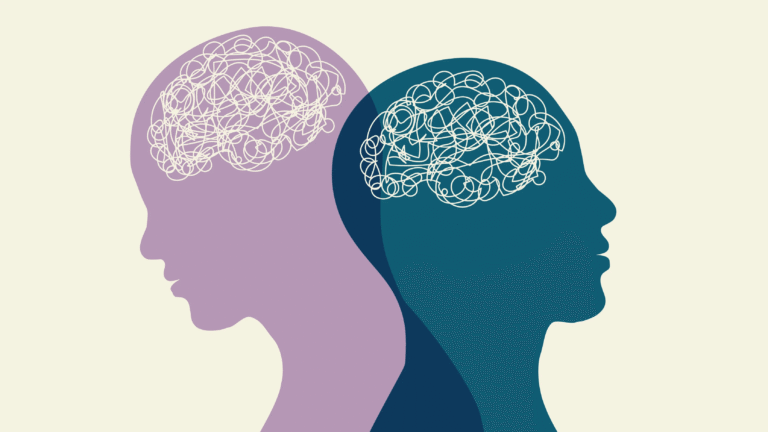Selecting the right mental health program for a teen in Scottsdale can feel overwhelming, especially with so many important factors to consider. Families should focus on programs that are licensed, have caring and qualified staff, provide a safe space, and offer care tailored specifically for teenagers. These things help ensure that teens get the right kind of support—support that actually works and respects their individual struggles.
A strong program should include proven therapies, involve the family, and offer scheduling that fits around a teen’s life. This is important for families managing school, work, and home demands. Some programs require teens to step away from daily life, which can make balancing responsibilities harder. Avery’s House’s Teen Outpatient Program, by contrast, combines structured care with the ability to maintain everyday routines. This treatment supports recovery while keeping teens connected to their usual environments. Since every teen’s needs differ, finding a program that adjusts to those needs is essential. This approach helps families make thoughtful decisions about the support their teen receives.
Key Takeaways
- Licensed programs with specialized staff are vital.
- Individualized, flexible care benefits both teens and families.
- The right program supports school and personal growth.
Core Elements of Effective Teen Mental Health Programs
High-quality teen mental health programs depend on a few foundational elements. These include the training and experience of staff, the use of proven therapeutic methods, and the ability to tailor care to individual needs.
Licensed and Experienced Staff
A reputable teen mental health program in Scottsdale should have staff members with current licenses in their fields, such as psychology, counseling, or social work. Accreditation and ongoing training ensure that therapists and clinicians follow current best practices in adolescent care. Experience working with teenagers is essential, as adolescent mental health needs can differ significantly from those of adults. Skilled staff can identify subtle behavioral shifts and address family dynamics sensitively.
Parents and teens should expect a multidisciplinary team, including psychiatrists, therapists, counselors, and medical professionals. These staff members must be approachable and equipped to manage a range of issues, from anxiety to substance use. Staff qualifications and backgrounds should be transparent and easily accessible.
Evidence-Based Therapeutic Approaches
Effective programs use therapies that are supported by research. Methods such as Cognitive Behavioral Therapy (CBT), Dialectical Behavior Therapy (DBT), and trauma-informed practices are proven to help adolescents manage symptoms and develop healthy coping skills.
These approaches may be delivered through individual, group, or family sessions. Programs often blend different modalities to fit a teen’s specific diagnosis or concerns. Therapeutic techniques should be structured, goal-oriented, and regularly evaluated for effectiveness. Families should look for programs that routinely train staff in the latest therapeutic advancements and adjust protocols as new data emerges.
Individualized Treatment Plans
Each teen needs a treatment plan that addresses their unique background, strengths, and challenges. Assessment tools are used at intake to create a personalized set of therapeutic goals and strategies. Plans should define clear, achievable objectives with measurable outcomes. Regular progress reviews and input from both the teen and family allow for timely adjustments to interventions.
Individualized care also means coordinating with schools, primary care physicians, and family members when appropriate. By adapting to the teen’s evolving needs, programs can provide targeted, responsive care.
Key Considerations When Choosing a Program in Scottsdale
Selecting a teen mental health program requires close attention to how families are involved, the program’s professional standards, and whether there is meaningful long-term follow-up. Differences in these areas can significantly affect outcomes and each point deserves careful review.
Family Participation and Support
Active family involvement is a critical component of effective teen mental health treatment. Programs in Scottsdale should encourage parents and caregivers to engage in therapy sessions, educational workshops, and regular progress updates. Parental support is linked to improved recovery rates and helps teens apply coping skills at home.
Look for programs that offer specific family therapy sessions and provide resources for communication and conflict resolution. Staff should keep families informed, offer practical tips, and include them in goal-setting. This collaborative approach helps maintain a stable, supportive environment outside of treatment sessions.
Accreditation and Facility Safety
Ensuring that a teen mental health program is accredited by respected organizations, such as The Joint Commission or CARF, is essential. Accreditation signals compliance with established standards for safety, staff qualifications, and ethical practices. It is critical to verify that the facility holds current state licenses and adequate insurance coverage.
Parents should assess the environment for cleanliness, emergency protocols, and supervision levels. Staff credentials should be posted openly. Proper background checks for staff, clear safety policies, and transparent procedures build trust and increase the likelihood of positive outcomes. Accredited programs are also more likely to follow evidence-based treatment models..
Read More: Children’s Mental Health Awareness
Conclusion
Families in Scottsdale benefit from understanding the core features that matter most in a teen mental health program. Important factors include staff qualifications, treatment approaches, scheduling flexibility, and program accreditation.
Clear communication with providers helps parents and teens set realistic expectations and track progress over time. Making informed choices gives teens better access to the support they need for lasting well-being. Programs that match individual needs can make a meaningful difference for adolescents and their families.














